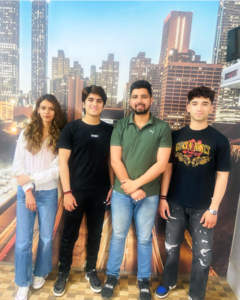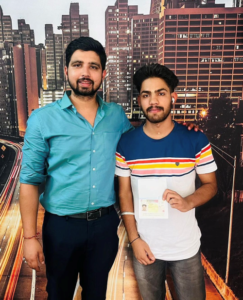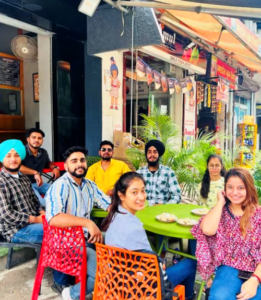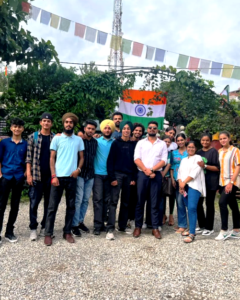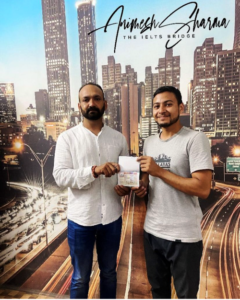Part 1: Questions 1-10
Complete the notes below. Write ONE WORD OR A NUMBER.
South city cycling club
Name of club secretary: Jim Hunter
Membership
• Full membership costs $260; this covers cycling and (1) all over Australia
• Recreational membership costs $108
• Cost of membership includes the club fee and (2)
• The club kit is made by a company called (3)
Training rides
• Chance to improve cycling skills and fitness
• Level B: speed about (4) kph
• Weekly sessions
o Tuesdays at 5.30 am, meet at the (5)
o Thursdays at 5.30 am, meet at the entrance to the (6)
Further information
• Rides are about an hour and half
• Members often have (7) together afterwards
• There is not always a (8) with the group on these rides
• Check and print the (9) on the website beforehand
• Bikes must have (10)
Part 2: Questions 11-16
Choose the correct letter A, B or C.
Information on company volunteering projects
11. How much time for volunteering does the company allow per employee?
A two hours per week
B one day per month
C 8 hours per year
12. In feedback almost all employees said that volunteering improved their
A chances of promotion
B job satisfaction
C relationships with colleagues
13. Last year some staff helped unemployed people with their
A literacy skills
B job applications
C communication skills
14. This year the company will start a new volunteering project with a local
A school
B park
C charity
15. Where will the Digital inclusion Day be held?
A at the company’s training facility
B at a college
C in a community centre
16. What should staff do if they want to take part in the Digital Inclusion Day?
A fill in a form
B attend a training workshop
C get permission from their managers
Questions 17 and 18
Choose TWO letters A-E.
Which TWO things are mentioned about the participants on the last Digital Inclusion Day?
A they were all over 70
B they never used their computer
C their phones were mostly old fashioned
D they only used their phones for making calls
E they initially showed little interest
Questions 19 and 20
Choose TWO letters A-E.
What TWO activities on the last Digital Inclusion Day did participants describe as useful?
A learning to use tablets
B communicating with family
C shopping online
D playing online games
E sending emails
Part 3: Questions 21-25
Choose the correct letter A, B or C.
Planning a presentation on nanotechnology
21. Russ says that his difficulty in planning the presentation is due to
A his lack of knowledge about the topic.
B his uncertainty about what he should try to achieve.
C the short time that he has for preparation.
22. Russ and his tutor agree that his approach in the presentation will be
A to concentrate on how nanotechnology is used in one field.
B to follow the chronological development of nanotechnology.
C to show the range of applications of nanotechnology.
23. In connection with slides, the tutor advises Russ to
A talk about things that he can find slides to illustrate.
B look for slides to illustrate the points he makes.
C consider omitting slides altogether.
24. They both agree that the best way for Russ to start his presentation is
A to encourage the audience to talk.
B to explain what Russ intends to do.
C to provide an example.
25. What does the tutor advise Russ to do next while preparing his presentation?
A summarise the main point he wants to make
B read the notes he has already made
C list the topics he wants to cover
Questions 26-30
What comments do the speakers make about each of the following aspects of Russ’s previous presentation?
Choose FIVE answers from the box and write the correct letter A-G next to questions 26-30.
Comments
A lacked a conclusion
B useful in the future
C not enough
D sometimes distracting
E showed originality
F covered a wide range
G not too technical
Aspects of Russ’s previous presentation
26. structure
27. eye contact
28. body language
29. choice of words
30. handouts
Part 4: Questions 31-40
Complete the notes below. Write ONE WORD ONLY for each answer.
Episodic memory
• The ability to recall details e.g. the time and (31) of past events
• Different to semantic memory- the ability to remember general information about the
(32) which does not involve recalling (33) information
Forming episodic memories involves three steps:
Encoding
• Involves receiving and processing information
• The more (34) given to an event the more successfully it can be encoded
• To remember a (35) it is useful to have a strategy for encoding such information
Consolidation
• How memories are strengthened and stored
• Most effective when memories can be added to a (36)
• The (37) of retrieval affects the strength of memories
Retrieval
• Memory retrieval often depends on using a prompt e.g. the (38) of an object near to the place where you left your car
Episodic memory impairments
• These affect people with a wide range of medical conditions
• Games which stimulate the (39) have been found to help people with schizophrenia
• Children with autism may have difficulty forming episodic memories – possibly because their concept of the (40) may be absent
• Memory training may help autistic children to develop social skills


